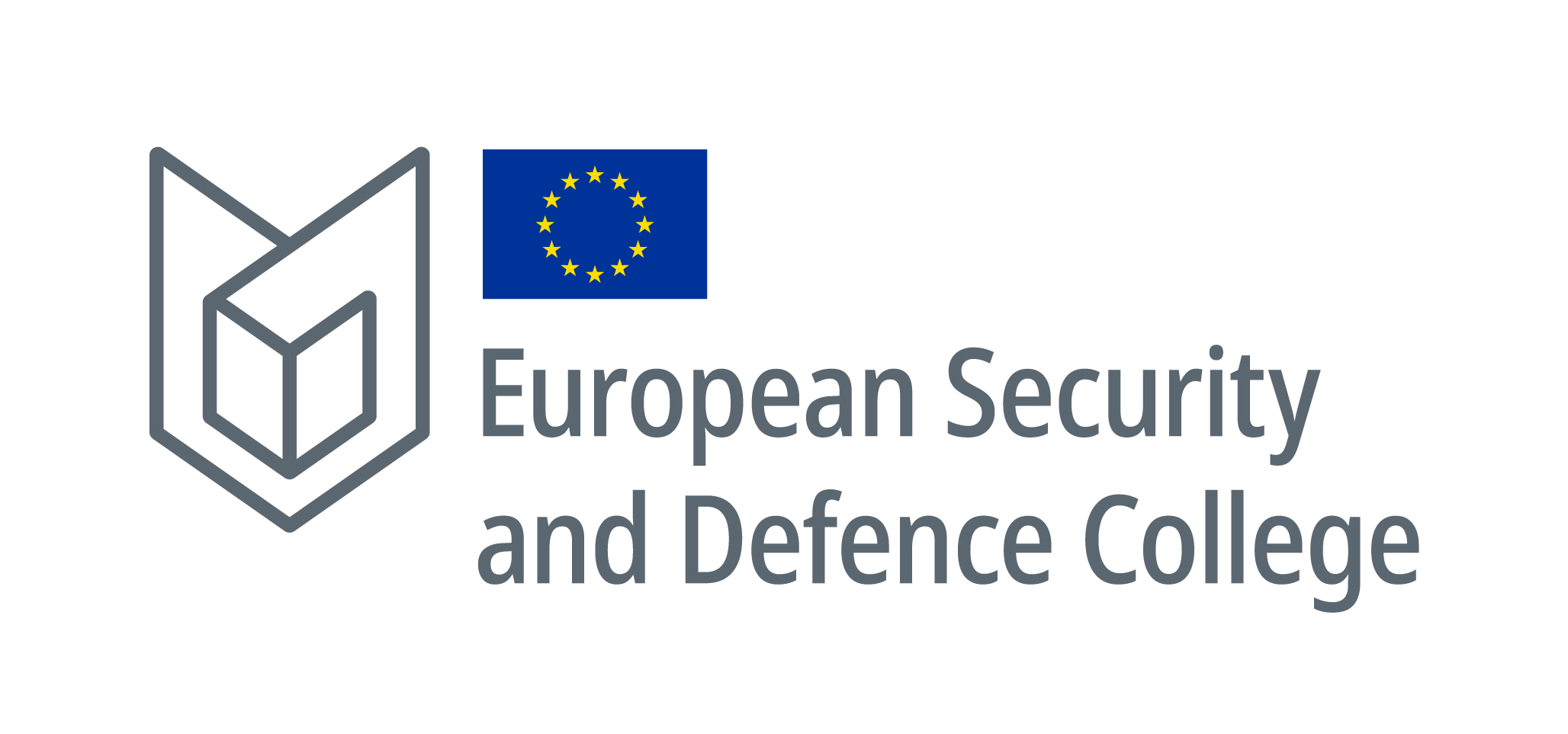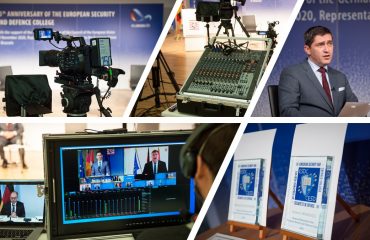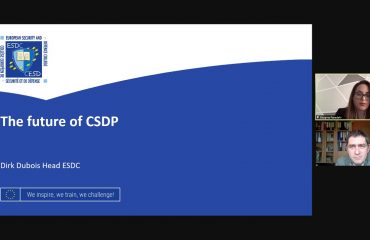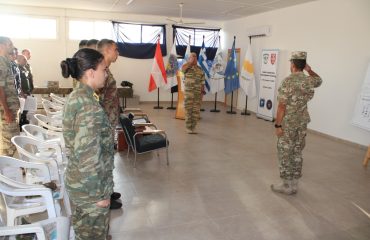 This second and last module took place in a fully online format between 14 and 18 June 2021. The sessions aimed to present the European Union’s external cyber strategy and policies, with a focus not only on international laws, rules and norms, disinformation and hybrid threats, and capacity and confidence-building measures, but also on international cooperation with different international organisations, such as the United Nations (UN), the Organization for Security and Co-operation in Europe (OSCE), the Organisation of American States (OAS) and the African Union, etc.
The high-level speakers, from all over the world, were actively involved in their panels as participants, and interacted with each other in different ways, including Q&A sessions, discussions, and the use of a variety of online tools, improving the dynamics of the course as a whole.
Over the five days of the course, the main topics and dimensions relating to cyber diplomacy were discussed from different perspectives, identifying common points and different views, along with a desire to tackle discontinuities and divergences.
Together with the first module, organised between 10 and 12 November 2020 by the National Institute for Research & Development in Informatics (ICI Bucharest), this new modular course will provide an insight into Cyber Diplomacy, touching on all associated aspects and domains, and offering a full overview of the complexity and interdependencies between domains. In addition, all participants will have an opportunity to enhance their knowledge through table-top exercises, from simple to advanced tasks, thereby creating a better understanding of the processes and organisations involved.
We would like to express our gratitude to all the course speakers who shared their knowledge and expertise in this field, making it possible to enjoy meaningful dialogues and interactions, and occasionally almost making us forget that it was all taking place virtually. The quality of their lectures and speeches was top-level, and this was also reflected in the feedback received.
Among the comments submitted by participants:
This second and last module took place in a fully online format between 14 and 18 June 2021. The sessions aimed to present the European Union’s external cyber strategy and policies, with a focus not only on international laws, rules and norms, disinformation and hybrid threats, and capacity and confidence-building measures, but also on international cooperation with different international organisations, such as the United Nations (UN), the Organization for Security and Co-operation in Europe (OSCE), the Organisation of American States (OAS) and the African Union, etc.
The high-level speakers, from all over the world, were actively involved in their panels as participants, and interacted with each other in different ways, including Q&A sessions, discussions, and the use of a variety of online tools, improving the dynamics of the course as a whole.
Over the five days of the course, the main topics and dimensions relating to cyber diplomacy were discussed from different perspectives, identifying common points and different views, along with a desire to tackle discontinuities and divergences.
Together with the first module, organised between 10 and 12 November 2020 by the National Institute for Research & Development in Informatics (ICI Bucharest), this new modular course will provide an insight into Cyber Diplomacy, touching on all associated aspects and domains, and offering a full overview of the complexity and interdependencies between domains. In addition, all participants will have an opportunity to enhance their knowledge through table-top exercises, from simple to advanced tasks, thereby creating a better understanding of the processes and organisations involved.
We would like to express our gratitude to all the course speakers who shared their knowledge and expertise in this field, making it possible to enjoy meaningful dialogues and interactions, and occasionally almost making us forget that it was all taking place virtually. The quality of their lectures and speeches was top-level, and this was also reflected in the feedback received.
Among the comments submitted by participants:
“Completely fantastic. Hard to improve. Thank you“ “High -level – contents, speakers, organization”




